Nutrition Guide 2.0
Macronutrients and Their Role in Exercise
Macronutrients are the primary sources of energy and essential components for muscle repair, growth, and overall health. The three main macronutrients are:
Fats: A dense source of energy (9 kcal/g), primarily used during low-intensity, long-duration activities. They also play a crucial role in hormone production and cell membrane function.
Carbohydrates (CHO): The body's preferred energy source (4 kcal/g). They are stored as glycogen in muscles and the liver and provide quick energy during high-intensity activities.
Protein: Essential for muscle repair and growth (4 kcal/g). It plays a secondary role in energy production but is crucial for recovery and muscle synthesis post-exercise.
Macronutrient Importance in Exercise
Carbohydrates provide quick energy for short bursts of high-intensity activities such as sprinting and weightlifting.
Fats support long-duration, low-intensity activities like endurance training.
Protein aids in muscle recovery and growth after resistance training or prolonged endurance exercise.
Glycemic Index (GI) & Glycemic Load (GL)
The Glycemic Index (GI) ranks carbohydrates based on how quickly they raise blood glucose levels, while Glycemic Load (GL) considers the portion size of food along with its GI.
When to Use High or Low GI Foods
Pre-Exercise: Low-GI foods (slow-digesting) for sustained energy release.
During Exercise: Moderate- to high-GI foods (quick-digesting) for immediate fuel during prolonged activities.
Post-Exercise: High-GI foods to rapidly replenish glycogen stores and promote muscle recovery.
GI & GL Food List
High GI Foods (Best Post-Workout)
White bread, white rice, glucose, sports drinks
Moderate GI Foods
Whole wheat bread, bananas, oats
Low GI Foods (Best Pre-Workout)
Sweet potatoes, whole grains, legumes
Insulin and Its Role in Nutrition & Exercise
Insulin is a hormone responsible for nutrient delivery and storage. It plays an essential role in muscle recovery and energy replenishment:
Helps transport glucose and amino acids into muscle cells.
Stimulates glycogen synthesis post-exercise.
Supports muscle repair by enhancing protein synthesis.
Needs to be managed to prevent fat storage—best controlled by consuming the right types of carbohydrates at the right times.
Micronutrients: Overview
Micronutrients include vitamins and minerals that support energy production, immune function, and muscle repair. Although required in small amounts, they are crucial for:
· Muscle contractions (Calcium, Magnesium)
· Oxygen transport (Iron)
· Energy metabolism (B vitamins)
· Antioxidant protection (Vitamin C, E)
Water, Cell Volumisation & Electrolytes
Water is essential for maintaining optimal performance, muscle function, and hydration levels.
Proper hydration helps in:
Maintaining cell volume, which aids muscle growth and performance.
Transporting nutrients and removing waste products.
Regulating body temperature during exercise.
Electrolytes & Their Role
Electrolytes such as sodium, potassium, calcium, and magnesium are critical for:
Muscle contraction and nerve signaling.
Preventing dehydration and cramping during exercise.
Replenishing lost fluids post-exercise for optimal recovery.
Hydration Recommendations
Pre-Exercise: 500ml of water 2-3 hours before training.
During Exercise: 150-250ml every 15-20 minutes.
Post-Exercise: 500-1000ml per pound of weight lost during exercise.
Sports Supplements for Performance
Protein: Types & Recommendations
Protein is essential for muscle repair and recovery. Different types offer varying benefits:
Whey Protein: Fast-absorbing, ideal post-workout.
Casein Protein: Slow-digesting, best before bed to prevent muscle breakdown.
Soy Protein: A plant-based option that supports muscle recovery.
Egg Protein: A high-quality protein source rich in essential amino acids.
Protein Intake Recommendations
General fitness: 0.8 - 1.2g per kg body weight
Strength training: 1.6 - 2.0g per kg body weight
Endurance athletes: 1.2 - 1.6g per kg body weight
Weight loss with muscle retention: 1.6 - 2.2g per kg body weight
Creatine: Mechanism & Recommendations
Creatine enhances energy production, strength, and muscle mass by increasing phosphocreatine stores in muscles.
Benefits:
Improves high-intensity exercise performance.
Speeds muscle recovery.
Supports cell volumisation.
Recycles ATP
Cognition
Dosage Recommendations:
Loading Phase (Optional): 20g/day for 5-7 days.
Maintenance: 3-5g/day for long-term use.
Best taken post-workout with carbohydrates to enhance absorption.







